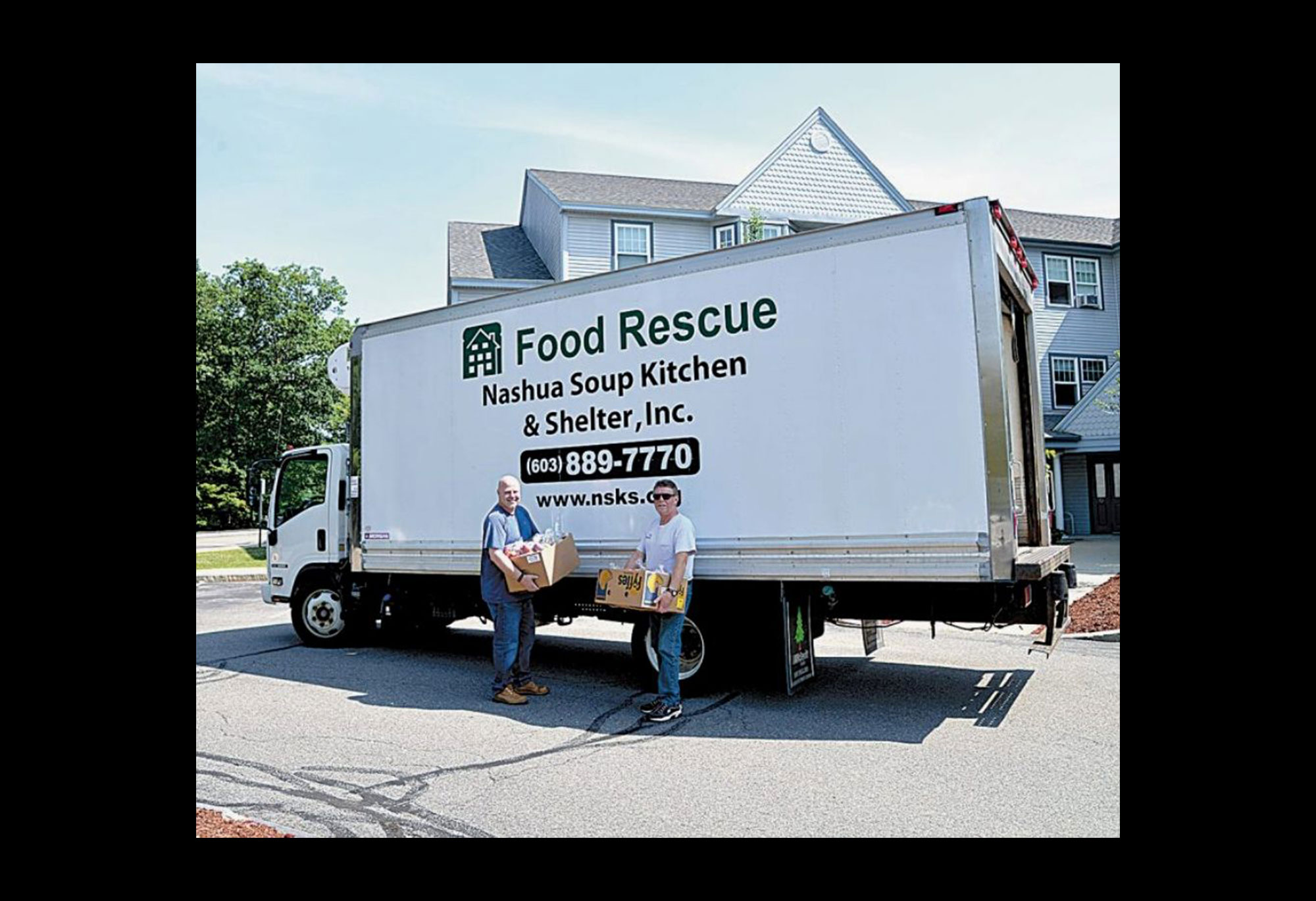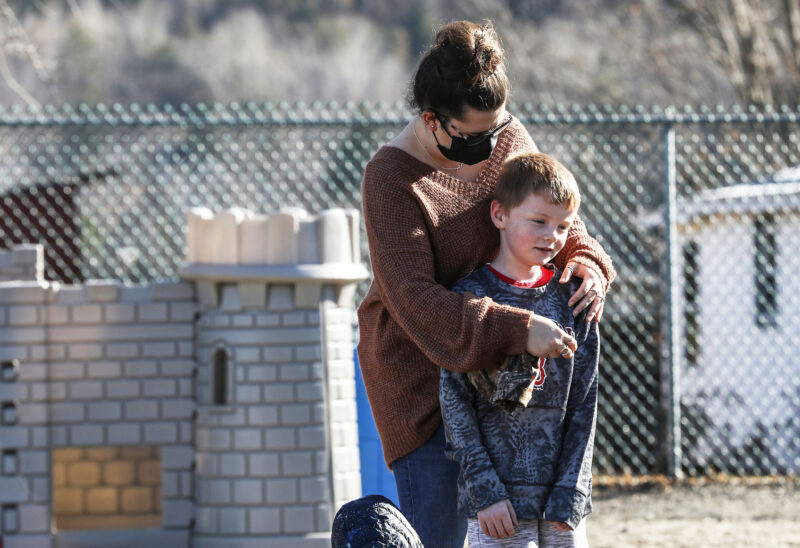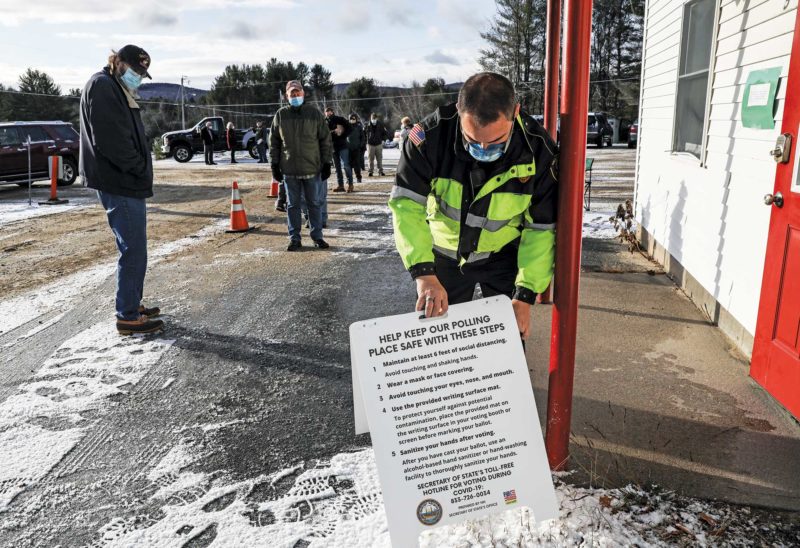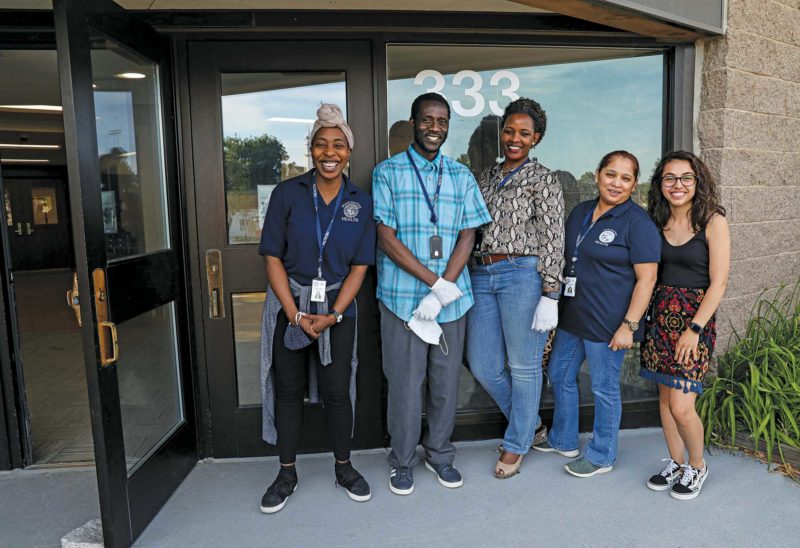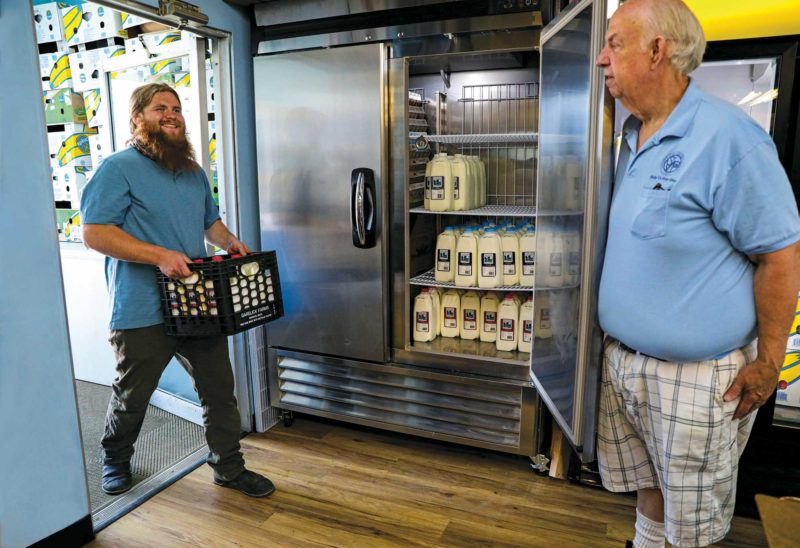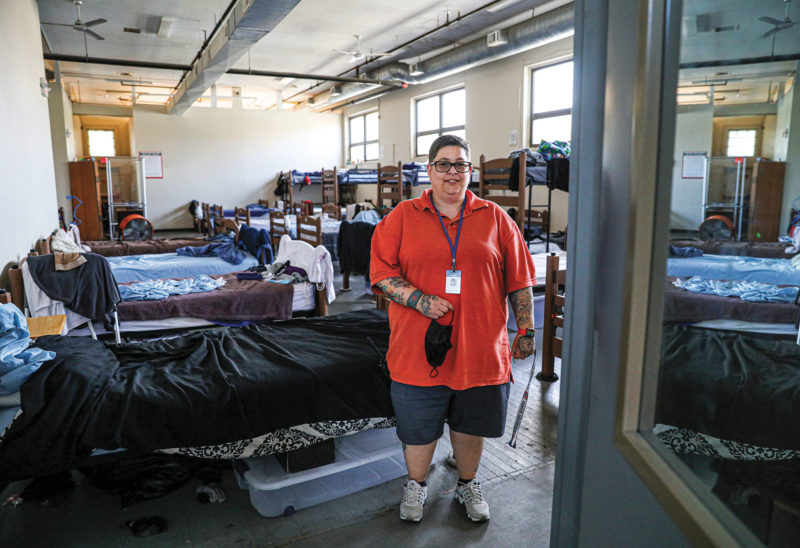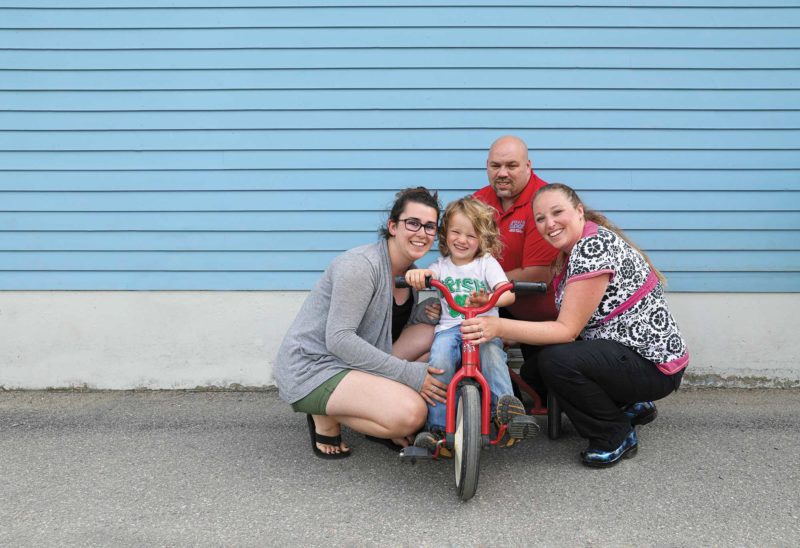Rob is an essential worker, stocking grocery shelves in a Portsmouth market during a pandemic. He started his job a couple weeks ago. At night, he goes home to sleep in a homeless shelter.
To help keep people safe during the COVID-19 pandemic, that shelter, Cross Roads House in Portsmouth, has moved Rob and a number of other residents into hotel rooms, where they have their own bathrooms and entrances and have meals delivered by volunteers.
Homeless shelters all over the state have been working hard to adapt in response to the current public-health crisis, as it became clear that social-distancing recommendations and congregate living were almost impossible to reconcile. Shelter directors have tackled the dual challenges of keeping residents and staff safe while continuing to deliver on their missions.
“A shelter-in-place order works great if you have a home,” said Martha Stone, director of Cross Roads House. “But if you’re homeless, it presents significant challenges.”
Like: How to quarantine if someone is ill or has been exposed, where to go during the day when many shelters are usually closed, how to make sure children living in shelters have the technology necessary for remote learning, how to safely coexist in close quarters.
“Our response has been continually evolving,” Stone said. Part of the response has been to locate and rent 25 hotel rooms for residents whose medical conditions or age put them at high risk or who, like Rob, have jobs that take them out into the community regularly. (A state emergency order allows hotels to be used to house people who are homeless.)
“I am kind of on the front lines, dealing with general public,” Rob said.
Cross Roads House’s congregate meals — usually prepared and served by an army of volunteers — had to be halted. A local hotel group and restaurant are preparing donated food daily for more than 100 residents. Volunteers have been repurposed to do curbside meal delivery and food transport. And Cross Roads House has continued to move people into permanent housing, despite barriers posed by the pandemic: One 81-year-old, who had been in the shelter since August while on a wait list for senior housing, moved into her own apartment last week.
“People who dedicate their careers to serving the homeless are everyday superheroes — so they’re not really afraid of the impossible,” said Elissa Margolin of Housing Action New Hampshire. “You really see their tenacity and their commitment and their strength come out at a time like this. They didn’t crumble. When you say ‘Hey, why don’t you go find another building and find staff (which is almost impossible) and find them medical care and find a way to feed everyone and keep them safe,’ they say ‘Okay.’”
Margolin and other advocates have worked tirelessly with the state to put a plan in place to address the needs of this vulnerable population statewide, and to craft regional solutions. The state has now opened a site at a state building in Laconia to quarantine people who are ill or have known exposure to the virus but do not require hospitalization, and is working on a “decompression” site in southern New Hampshire, where residents can be moved from more-crowded shelters into a larger facility where more social distancing is possible.
The Charitable Foundation granted $250,000 from the Community Crisis Action Fund to address the needs of some of New Hampshire’s most vulnerable residents in communities across the state, including Portsmouth, Manchester, Nashua, Concord and Keene. The flexible grant dollars, which were distributed with the partnership of Housing Action New Hampshire, met a range of urgent needs quickly — from paying for hotel rooms to buying cleaning supplies and installing handwashing sinks to covering hazard and overtime pay for staff, buying tarps and tents for people who did not want to come to physical shelters, and buying backpacks for people who may need to go to quarantine. Foundation grants will be combined with other funding sources, including state and federal funds, to meet a range of needs. Generous donors have contributed more than $2.9 million to the Community Crisis Action Fund to date, grants from which are meeting a variety of urgent needs statewide.
At the Nashua Soup Kitchen and Shelter, the adult shelter facilities are now open during the day so people have a place to stay sheltered (requiring additional staff time); staff are working on renting additional space so residents can spread out; donated iPads are helping kids in the family shelter with remote learning; additional handwashing sinks have been installed. Residents’ health is being closely monitored.
The soup kitchen has pivoted from serving sit-down meals and operating a single-site food pantry to serving meals to-go (with orange cones set up to keep people appropriately distanced while waiting) and operating mobile food pantries at 16 different locations around the city, eight of which are schools. Since many children rely on school lunch and breakfast to meet their nutritional needs, the Soup Kitchen and Shelter has started preparing and delivering frozen meals for children while schools are closed.
“It’s all a work in progress,” said Executive Director Michael Reinke “We’re trying to get through today.”
All of the adaptations present significant additional costs for organizations that already operate on very thin margins. And, like many nonprofits, shelters have had to postpone or cancel fundraisers that they rely on for income. The Nashua Soup Kitchen and Shelter had to cancel an event that usually brings in upwards of $60,000; Cross Roads House postponed its largest fundraiser — which typically brings in $400,000 of the $1m the organization needs to raise each year for operations.
And advocates recognize that, while shelters across the state manage the first wave of this crisis, there is another one coming — as the economic aftershocks of this pandemic continue to shake communities.
“We have an eviction moratorium right now. In 3-4 months’ time, we’re going to have a lot of people owing back rent,” Margolin points out. “We are talking now about how to have solutions ready to keep people housed, because we are going to have an evictions crisis and a homelessness surge.”
Tomorrow, Rob will get up, eat his delivered breakfast and go to work stocking grocery shelves. He has also applied for a job with the U.S. Census Bureau, work he would do in addition to his job at the grocery store. He is grateful for the opportunity to live at Cross Roads House while he rebuilds and gets ready to rent his own place, and grateful to have his own space now, so he does not inadvertently put other residents at risk.
The staff at Cross Roads House, Rob said, “did a really good job” communicating, putting a plan in place, and adapting to the unprecedented situation.
“We, all of us, have to watch out for each other’s safety,” he said.
Homeless shelters and other nonprofits across the state need help more than ever. Please consider giving to help address needs in your community. Here is a list of New Hampshire nonprofit organizations that operate shelters:
New Hampshire nonprofits that operate shelters for homeless people and for survivors of domestic violence
Response, Berlin
Southwestern Community Services, Claremont
Turning Point, Claremont
Concord Coalition to End Homelessness, Concord
Crisis Center of Central NH, Concord
Family Promise of Greater Concord, Concord
Friends Program Emergency Housing, Concord
Salvation Army, McKenna House, Concord
Starting Point, Conway
My Friend’s Place, Dover
Seacoast Family Promise, Exeter
Bancroft House, Franconia
New Generations, Greenland
Hundred Nights, Inc., Keene
Monadnock Center for Violence Prevention, Keene
Southwestern Community Services, Keene
Belknap House, Laconia
Lakes Region Community Developers, Laconia
New Beginnings, Laconia
Salvation Army, Carey House, Laconia
Tyler Blain House, Lancaster
WISE, Lebanon
Support Center at Burch House, Littleton
Families In Transition, Manchester
Helping Hands Outreach, Manchester
The Way Home, Manchester
Waypoint, Manchester
YWCA, Manchester
Bridges, Nashua
Front Door Agency, Nashua
Marguerite’s Place, Nashua
Nashua Soup Kitchen & Shelter, Nashua
Southern NH Rescue Mission, Nashua
Bridge House, Plymouth
Voices Against Violence, Plymouth
Cross Roads House, Portsmouth
Haven, Portsmouth
Homeless Center for Strafford County, Rochester

